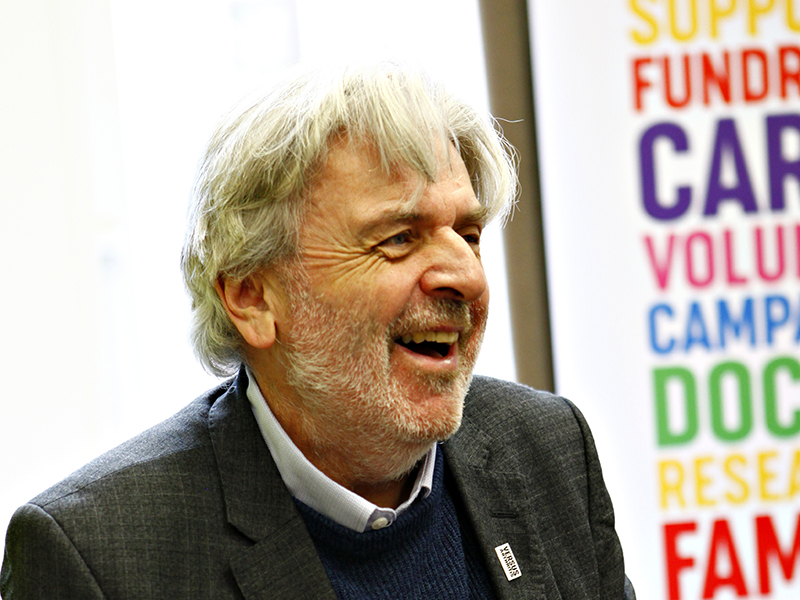Alan McGinley on the challenges and progress made to ensure people are 'waiting well' for NHS treatment
Earlier this year, Versus Arthritis brought together a group of stakeholders - from the third sector, health service and the Scottish Government – to talk about the Waiting Well agenda.
Against a backdrop of record waiting times for planned care, where one in seven Scots are on a waiting list, a new focus is being directed on to the support available to people while they wait. This time is increasingly being seen as an opportunity to support health and wellbeing and ensure that people can benefit fully from any treatment ahead.
However, for someone who has been waiting for a hip or knee replacement, in pain, anxious and perhaps worried about work and income, being invited to ‘wait well’ is as likely to be taken as an insult as an opportunity, and any programme that presents as 'waiting well’ needs to deal with that intuitive resistance as a first step.
When we ran a series of focus groups with people waiting for surgery in 2021, we were told, “it feels like you’re just in the system, a nobody, meaningless to the professionals. Nobody wants to know. You’re on the list and that’s it.” Another participant said: “I want to know how the waiting list is being prioritised.” To bridge this gap, the starting point is communication, starting with access to information.
NHS Inform has launched a new Waiting Well platform, which provides people waiting for treatment with accurate and relevant information to help them make informed decisions about their health, including how to prepare for surgery and where to find further support.
The resource is part of a programme of work being undertaken through the Scottish Government’s Preventative and Proactive Care (PPC) programme, which was launched a year ago. The PPC programme aims to support people to keep well by being more focused on what can be done to prevent issues and offer earlier proactive support. Alongside the digital platform, work is underway to develop toolkits for healthcare professionals and patients to have meaningful conversations about their health and their options as they wait for treatment.
Waiting Well is taking root in other parts of the UK. In England, the My Planned Care platform was launched in 2022 as an "open access web-based platform designed to provide greater transparency to patients on waiting times". And in Wales, the 3Ps Waiting Well Policy (Promoting healthy behaviours, Preventing deconditioning whilst waiting, Preparing for treatment and recovery) was recently launched with a focus on the availability of support and information to people waiting for treatment. Opportunities to link and learn between the three programmes could help to improve each of them.
At the roundtable discussion, participants agreed that, for Waiting Well to progress, there needs to be work across a number of fronts: understanding what support is available at health board level; embedding volunteer and peer support as part of the infrastructure; a focus on lived experience to illustrate what works and to build confidence; and the need for a fuller conversation with patients, public and healthcare professionals about ‘waiting well’ as a feature of healthcare into the future.
The NHS Inform Waiting Well Hub is an important element of a fuller programme of activity to coordinate information and support for people waiting for treatment. The challenges lie in the capacity of local services, including those provided by third sector organisations, to respond and adapt to the demand that emerges.
Alan McGinley is policy and engagement manager for Versus Arthritis.







